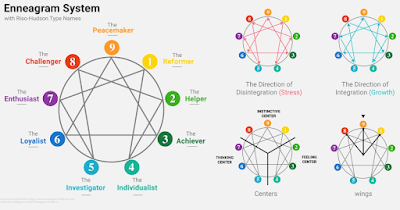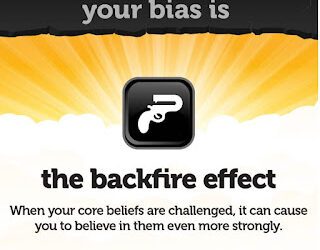Generally speaking, humans are control freaks. We like to feel like we have control over everything, which means randomness and uncertainty make us uncomfortable. There are several ways our brains try to overcome this. Compensatory control explains our tendency to compensate for a lack of control in one area of life by increasing control in a different area. For instance, parents who don’t feel like they have control at work might compensate by increasing their control over their children.

Another mechanism, apophenia, explains our tendency to find patterns and/or assign purpose or agency to mere coincidence and randomness. This is also sometimes referred to as pareidolia, hyperactive agency detection device (HADD), agenticity, or patternicity. This explains our tendency to see Jesus in potato chips, shapes in clouds, and the development of superstitions (along with conditioning).
Atheists will sometimes argue that these mechanisms explain why people believe in God. In many cases, I think they are right; although I do think that apologists can and do overcome these objections based on the evidence (this is a topic I plan to write on much more). However, when it comes to answers to prayer, religious experiences, and following God’s plan, I am not so sure believers can overcome objections rooted in these psychological mechanisms.
Answered Prayer?
Since becoming a Christian, I have prayed for God’s guidance and have obeyed what I thought God has wanted me to do, but if I’m being honest, I don’t really know if God has been leading me. Recently, I decided that the best way I could serve the kingdom was by getting a PhD in psychology so that I can incorporate it into apologetics. I prayed fervently for God to block this path if it’s not in His will, and if it is, I prayed that I would only get accepted to the school He wanted me to go to so I wouldn’t have the difficulty of choosing.
Not only was I accepted, but I was only accepted to one school, I received an increased stipend, I’ve already been given a couple exciting professional opportunities (I don’t officially start for another four months), I already have ministry opportunities there, and I just found out I will also receive a new laptop when I start in the fall (I found out right before I bought one myself). My prayers have been answered more wonderfully than I ever expected, but was it God who answered them? I am genuinely interested in hearing what others think, so please let me know.
The Problem of Consistency
While on the surface, it certainly seems like God has been orchestrating the events of my life, especially if we were to look even further into my past, it’s not so clear on further reflection. There are certainly Latter-Day Saints at BYU who feel God has answered their prayers similarly and thousands of other people who were accepted to PhD programs with similar or better benefits. Is God also guiding their path? If I accept that God guided my path, I also need to accept that God guided theirs, especially if their circumstances are more unlikely than mine.
What we also need to remember is that God is all-knowing so He knows what will happen in the future. This means that if He is directly guiding someone’s life, He knows what they will do as a result. Therefore, God is tacitly giving His approval to what they do and teach as a result of their God-given opportunity. So anyone who thinks God directly intervened to answer my prayers should also accept that when I teach doctrines different from what they believe (perhaps on creation, consciousness, free will, hell, or others), my views are likely correct. The only other option is to say that these secondary doctrines are not important to God, in which case, we shouldn’t waste time trying to figure these things out and should focus just on salvation.
Likewise, if anything bad happens to me or my family in the future, that was also God’s plan. I don’t expect anything bad will happen to me or my family, but if it does and I accept this as an answer to prayer, the only proper response is to praise God. If one of my children is killed in a car accident (or worse), God knew it would happen and I should praise Him knowing that it was His plan. I see a lot of Christians saying God called me to this or that or God gave me this opportunity, all of which appear to be good. I cannot recall ever hearing a Christian praising God when the bad stuff happens.
Finally, we come back to apophenia. We literally have thousands, if not millions of opportunities in our lifetimes for amazing coincidences or opportunities to happen to us. These can range from every day things such as getting a good parking spot, finding money on the ground, or bumping in to an old friend in a random place, to major life events such as buying a home, getting a job, or as in my case, getting accepted into a school. Plus, there are billions of people in the world. Considering the vast number of possibilities and number of people who exist, we should expect that due to pure random chance, we will experience highly unlikely events several times in our lives, whether we prayed for them or not.
And to top it all off, this doesn’t even factor in past experience and performance. In my case, assuming I had a good resume, and I don’t know if I did, I should expect to get into at least one school. If my resume was only pretty good or middle of the road, then I should expect to only get into a single school or none at all.
Conclusion
So what’s your verdict? Do you think God supernaturally intervened to answer my prayers or did things just happen to work out based on some combination of experience and coincidence? As much as I would like to claim God acted, intellectual honesty prevents me from doing so. God did not explicitly tell me He answered my prayers, didn’t give me any prophecy of it, no outside person confirmed it to me, and I don’t have a history of healing people or directly speaking to God as did the Old and New Testament prophets. I don’t doubt that God can and occasionally does still speak to people and directly answer prayer, but in most cases, it’s not the best explanation of the situation and might even be harmful to make such claims.
Why does this matter? Why not just praise God and give Him the glory no matter what? It’s because people are watching and they’re not stupid. They laugh, and rightfully so, at simplistic faith, they notice when what we were “called” to do ends in disaster, and they can see through our feeble claims of religious experiences. I’ve seen this cited as a reason for leaving the faith and I’ve had people personally tell me it keeps them from it. There’s so much evidence for Christianity and so many good ways to show Christ’s love that we simply don’t need to claim supernatural intervention for ordinary experiences.
Although it’s a slightly different question, I thought this video by J. Warner Wallace would be good way to end because he discusses how it’s unnecessary to invoke a supernatural cause when natural explanations work perfectly well. My next couple articles will discuss a few uncommon apologetics topics: vaccines and sleep (I haven’t decided which will be first). Can you guess how they might relate to psychology and apologetics?



